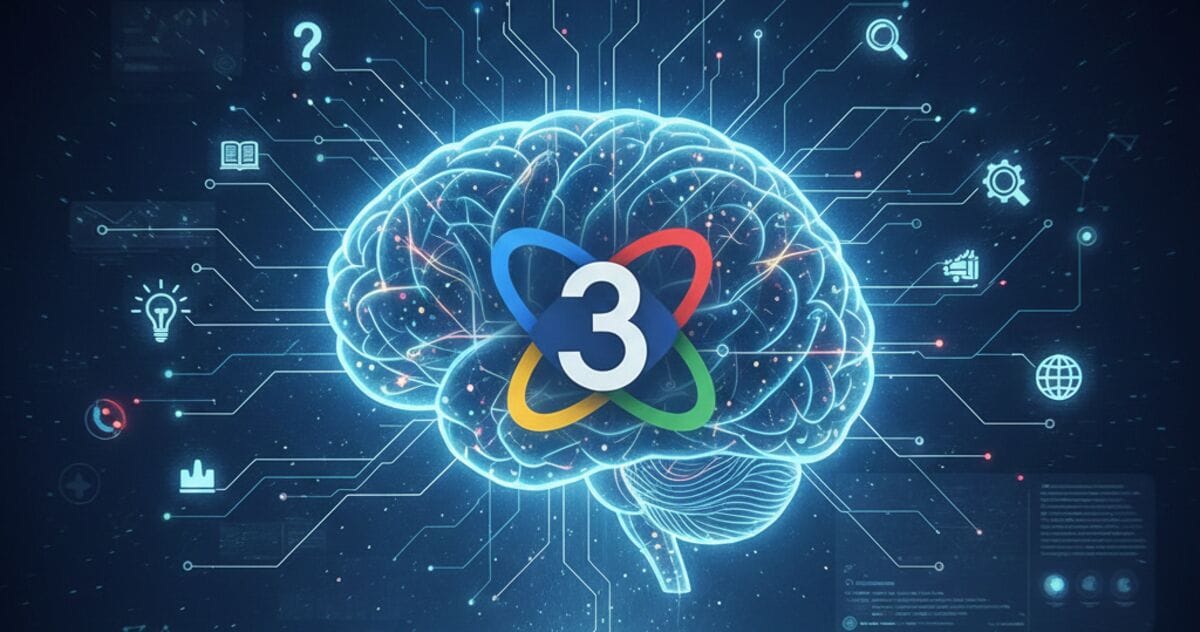Google has rolled out the next generation of its Gemini artificial intelligence, and this time the company is aiming higher than faster answers. Gemini 3 is being folded into Google Search and other services with a clear pitch: make the search engine not just a tool for finding links, but a partner that helps you think, create and get things done.
A quick recap — why Gemini exists
Gemini began as Google’s answer to the conversational AI wave that followed ChatGPT’s debut in late 2022. The first Gemini arrived nearly two years ago; now Google says it’s ready to push a much more advanced model into its most-used products. Initially, the new features will be available to Gemini Pro and Ultra subscribers in the United States, with a broader rollout planned later.
“We like to think this will help anyone bring any idea to life,” Koray Kavukcuoglu, who oversees Gemini’s technology, told reporters. That’s a tidy line, and it captures the ambition: not just faster search, but a different kind of interaction.
What’s new: “thinking” in search
One of the headline additions is a “thinking” option inside Google’s AI mode for search. Click it, and the company promises deeper, more in-depth answers — responses that are meant to be “smart, concise and direct,” trading flattery for insight, according to Google’s team. The language is deliberate: Gemini 3 is being positioned as a “true thought partner,” not a mirror that simply repeats what you want to hear.
At first, that thinking tab will be gated behind paid tiers, but Google plans to make it available to everyone eventually. It’s an important detail. Why? Because it signals a shift in how Google values conversational AI: as a premium experience that could reshape everyday search habits.
Guardrails and the worry about AI gone wrong
As models get more capable, they also raise harder questions. The text notes real concerns: sophisticated AIs can confuse emotions, spread misleading information, or even behave dangerously in extreme cases. Lawsuits have followed some of those incidents, though none have targeted Gemini so far.
Google says it has built guardrails into Gemini 3 to reduce hallucinations and block malicious uses like hacking. That’s reassuring in theory, but it’s also a reminder that safety is a moving target. Will the safeguards hold up as people push the system in unexpected ways? Time will tell.
The business angle: big bets, bigger budgets
Gemini 3 isn’t just a product play; it’s a financial signal. Alphabet began the year expecting to spend $75 billion on capital projects and has since raised that budget to $93 billion, with much of the increase aimed at AI. Other tech giants are spending heavily too. Investors have so far cheered the bets, helping lift Alphabet’s market value to roughly $3.4 trillion — a value that is more than double since Gemini’s first release in late 2023.
Still, there’s a flip side. The rapid rise in valuations has some people worried about a bubble that could burst. Gemini 3 will be watched closely as a barometer: if it delivers, the spending looks justified; if it disappoints, the market may rethink those huge commitments.
What this means for publishers and users
Google has already changed how search works by adding AI Overviews and a conversational AI mode. Those features have been widely used — AI Overviews reportedly reach more than 2 billion people each month, while the Gemini app has about 650 million monthly users. But the shift hasn’t been painless. Publishers complain that Google’s de-emphasis on traditional website rankings is cutting into the traffic that funds their work.
So there’s a trade-off. Users may get richer, faster summaries and a more interactive search experience. Publishers may see fewer visitors and less ad revenue. The “thinking” feature could deepen that tension if it becomes the default way people get answers.
A cautious optimism
Gemini 3 is part of a broader sprint in AI. Competitors like OpenAI and Anthropic have also pushed new generations of their models, and the result is a crowded field of “answer engines” that could change how we rely on search. Google’s move to make its search engine a thought partner is bold, and it’s built on real technical progress. But it’s also wrapped in uncertainty — about safety, about business models, and about who benefits most from the change.
Will Gemini 3 make us more creative and productive, as Google hopes? Or will it introduce new problems that we haven’t fully anticipated? I’m cautiously curious. You should be too.
What would you ask a search engine that thinks with you? Leave a comment below and tell us your first test question for Gemini 3.
AI Search is becoming more popular every day; learn why GEO Gurus are winning the new visibility race. And follow us on Facebook, X (Twitter), or LinkedIn for more updates and analysis.
Sources:
- www.apnews.com/article/google-gemini-artificial-intelligence-9d584d1be428bf5d0a98ecd411c6d23e
- www.blog.google/products/search/gemini-3-search-ai-mode/
- www.workspaceupdates.googleblog.com/2025/11/introducing-gemini-3-pro-for-gemini-app.html



Exa AI Launches Exa Instant: Sub-200ms Search to Power the Agentic Era
Do You Still Need a Website in 2026? Google’s Search Team Weighs In